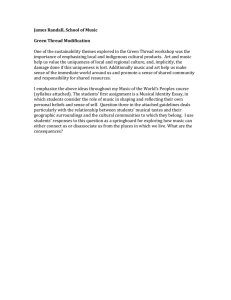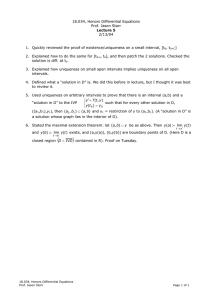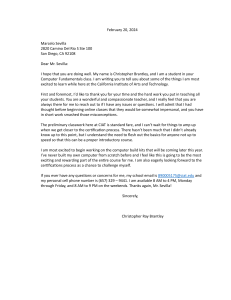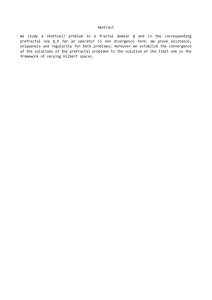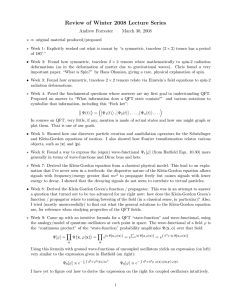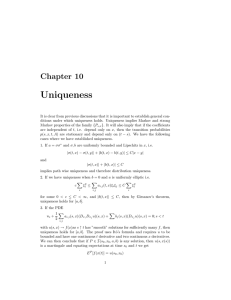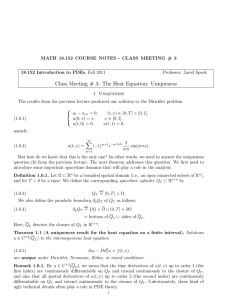THE UNCERTAINTY PRINCIPLE AND UNIQUENESS SETS FOR THE KLEIN-GORDON EQUATION
advertisement
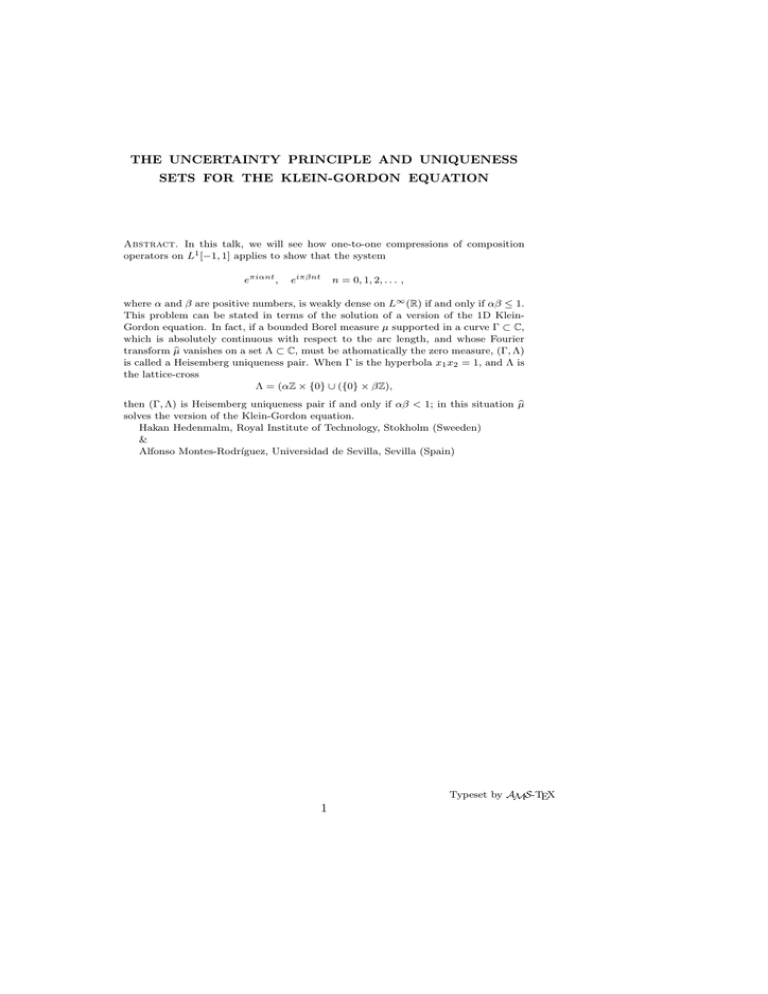
THE UNCERTAINTY PRINCIPLE AND UNIQUENESS
SETS FOR THE KLEIN-GORDON EQUATION
Abstract. In this talk, we will see how one-to-one compressions of composition
operators on L1 [−1, 1] applies to show that the system
eπiαnt ,
eiπβnt
n = 0, 1, 2, . . . ,
where α and β are positive numbers, is weakly dense on L∞ (R) if and only if αβ ≤ 1.
This problem can be stated in terms of the solution of a version of the 1D KleinGordon equation. In fact, if a bounded Borel measure µ supported in a curve Γ ⊂ C,
which is absolutely continuous with respect to the arc length, and whose Fourier
transform µ
b vanishes on a set Λ ⊂ C, must be athomatically the zero measure, (Γ, Λ)
is called a Heisemberg uniqueness pair. When Γ is the hyperbola x1 x2 = 1, and Λ is
the lattice-cross
Λ = (αZ × {0} ∪ ({0} × βZ),
then (Γ, Λ) is Heisemberg uniqueness pair if and only if αβ < 1; in this situation µ
b
solves the version of the Klein-Gordon equation.
Hakan Hedenmalm, Royal Institute of Technology, Stokholm (Sweeden)
&
Alfonso Montes-Rodrı́guez, Universidad de Sevilla, Sevilla (Spain)
Typeset by AMS-TEX
1
